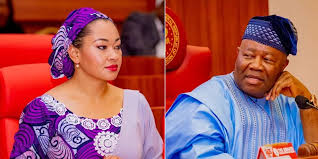
Ruga or Ranch – Fear is a bad master
Opinion
By Igbonekwu Ogazimorah
The news has broken two days ago of Enugu Government’s plan to establish either Ruga or Ranch in Uzo Uwani local government area of the State.
Ruga, according to ‘wordmeaning’, is Fulani word for “human settlement,” which, of course, includes vast spaces for farming, ranching, and other areas of human endeavour.
A ranch, on the other hand, is the word for a large territory designated and used for raising and rearing cattle.
In his work, “Stop the carnage”, Sani Muhammed admonished the then federal government of Nigeria to consider “ranching, abattoir, refrigeration and trucking” to stem the incessant friction between Nigerians and Fulani herdsmen.
In his words, “you establish ranches and cause the herdsmen to stay at a place…then you ban movement of live cows, introducing abattoirs in ranches whereby the cows are killed, refrigerated and trucked across Nigeria.”
The question that arose then was, on whose territory would the ranches be established?
Of course, most governors objected to any ranch being allowed in their territories. One governor simply said, “if you want land for ranching, meet the owners, negotiate and pay.”
It was only Kano that offered its vast lands.
The herders did not take up the offer.
Then came the proposal to establish Ruga in every State. The Ruga move was indeed a huge plan by the Federal Government of Muhammadu Buhari. One was planned for each senatorial zone.
Remember, the meaning of Ruga is Fulani settlement.
Many had wondered what special appeals there were in attempting to establish Fulani settlements in every senatorial zone in Nigeria. That was going to amount to 109 fresh Fulani settlements inflicted on Nigerians by the Buhari administration.
Again, the people rejected it. Some vocal governors made it clear that their States had no land to offer for any Ruga or whatever it was called.
Do not forget, Nigerians have had to scream about many policies of the Federal Government seen to be designed to confer on the Fulani some entry privileges in Nigeria. The war against river Bank law, farm estates, etc, have persisted.
Now, the question is, why a ranch in Enugu?
When the story broke last Friday, many, including this writer, suspected that it was mere opposition propaganda.
But it has turned out not to be. The government, through its Commissioner for Information, Mazi Aka Eze Aka, has made a statement clarifying its position. First, it confirmed that the government is setting up a “ranch,” not “ruga.”
But what comes to the mind of Nigerians each time “ranch” or “ruga” is mentioned? Destruction of crops; ransacking of villages; rape; kidnapping; slaughter of men, women, children, the aged and the infirm, in their sleepy villages, and general fear or terror is spread in the surrounding communities.
The mass slaughter of even infants, the aged and the infirm, in Ukpabi Nimbo in 2016 is quite fresh in the minds of the people of Enugu State. It was so horrendous that Enugu people, who were part of the Igbo who saw the Nigeria- Biafra war where great human carnage had been inflicted on the civilians were still horrified beyond point.
Even a Fulani man was reported to have admitted that it was too much, even as it was, by his standard, desirable to warn the people against blocking or interfering with the movement of herdsmen in the area.
Of course, many other attacks had occurred, some in like magnitude while others were of lesser destruction of lives. In a community in Udi North, a poor young man had his right hand severed in one sharp swing of machete by a Fulani who was hell bent of seizing his basket of freshly plucked cashews. In each case, across the land, lives and property had been lost.
At the moment, and where the government had admitted to planning the establishment of a ranch, what are the attractions?
The government, in Mazi Aka’s release, said that the project was to, among other benefits, halt or reduce the movement of cattle, enforce anti-open grazing law, earn revenue for the State, eliminate herder-natives clashes, etc.
Are these likely to turn out as benefits as planned?
In this writer’s view, they are unlikely.
Many Nigerians have wrongly lived on the belief that the clashes between herders and farmers, herder-kidnapping, killings, tensions, etc, were because the herdsmen had not been offered places for permanent settlement. Many also believe that the herders are desirous of ranches or ruga because they sincerely pray to be allowed permanent abodes in the areas they operated.
The question that should be addressed in clearing these wrong assumptions are, before you believe that is, why did they not take up the offer by the governor of Kano State in 2016/17? Why did the offer of the territory which they later called Zango Kataf and finally named Jemaa Local Government in Kaduna State not contain their quest for territories and blood in that State? Didn’t that even increase and quadruple the killings?
What about their vermin-like forays in Plateau State where they, after being strategically inserted in every local community, never ceased from demanding the entire land areas? In all the cases, lives have been lost in great numbers. Farms and homes have been destroyed.
If indeed grazing areas are the attraction, why even go to the southeast where land is in the worst shortage and where you cannot go a mere two kilometers without meeting a vast human/locality settlement?
The Fulani are known not to keep to agreements. It is only a matter of time before they contest whatever lands you allocate to them, even as tenants. Indeed, they do not believe anybody owns any land. They do not even think it as normal that people want them to be confined to any territory.
Once, in the 1990s, Prof. Jubril Aminu, an elite Fulani, former Senator, former vice chancellor of the University of Maidugiri, explained the itinerant nature of the Fulani. “It is a cultural thing. They move in seasons and through East, central and west Africa. It is not a part of their culture to settle down. They are not the same as the town Fulani…”
He was right.
But he couldn’t have explained the reason these nomads deviate from cattle herding to stealing, killing, kidnapping, rape and mass murders.
The battle of the late Gabrel Nnaji family over the lands they allowed the Fulani to occupy at the so called new Artisan in Enugu is still fresh in the minds of residents.
lands they allowed the Fulani to occupy at the so called new Artisan in Enugu is still fresh in the minds of residents.
They entered and dug in. It took combined efforts in litigation, security intervention and locality militancy for them to yield the land. In fact, the government had to offer them another land before they moved. Do not miss the fact that it still took enforcement efforts of security officials to finally evict them.
Well, the government, Solstay says, is the contrivance of human wisdom. In the wisdom of the government of Enugu State, a ranch is believed to be desirable at this point in time, in Enugu State.
Baring any further queries that may have been raised by the local Uzo Uwani people, they may have been on their way to settling in the territory.
Yet, it cannot remove the fact of asking, were the communities duly consulted? Were all stakeholders apprised of the values of the new enterprise? What measures are in place to contain the usual, and known excesses of the herders, many of whom are normal good human beings, but who are in themselves so weak and compliant to the heady, criminal elements who perpetrate unwholesome acts.
A herder once told this writer, “aswear, we herdmens no dey thief; we no dey kidnap; but the kidnappers enter us and force us not to talk. If we talk, they kill us. They kill our goats and use to feed the persons wey them kidnap.”
Did you get that?
Enugu State is about the least in land mass in Nigeria. Kogi State is about five times the size of Enugu, indeed bigger than the entire South East. But they have not set up a ranch for herdsmen.
Please, do not misunderstand this piece. A ranch is ordinarily a good business idea, especially at the level of an entrepreneur’s strides. Establishing it for a non-definable people, roaming from Central Africa to West Africa and back to East Africa does not seem to me to be well thought out. I do not think it is the same thing as offering land to a business man interested in development of livestock business in Enugu State.
How do you take in a tenant who you cannot trace and who does not believe that he is subject to any law? He is here today, but when you ask of him tomorrow, you may realise that he has gone back to Central African Republic where he came from.
The idea of looking at establishment of an omnibus ranch for a non-definable people as means of raising the revenue of Enugu State is amusing. Oh yes, revenue a.k.a GDP, is good. But isn’t it desirable that each point is properly thought out, weighed and the larger interest of the people put ahead of other factors?
The same goes with this idea of most governments in Nigeria believing that the Land Use Act of 1978, actually gave them title to people’s lands.
Well, they have the capacity to employ the best of lawyers, ask the right questions and take the best decisions. I think it is better to leave it at that.
Lastly, while the government, in pursuit of desired revenue, takes in taxes, levies and dues from the herders, who takes the rent? Communities or government? Or have the communities been compensated as required in law?
Lastly, lastly, truth be told, many Nigerians have good reasons to believe that the herders, as they have so far operated in Nigeria, are forerunners of a certain imperial force somewhere. Only recently, it is coming clearer that this imperial power is turning out to be European.
Using the Fulani makes sense to their destabilisation agenda. They do the unsettling job and move on.
Some think it is religious, propped and pushed from the Arab world, and you ask, to what effect?
People answer: “to do what Usman Dan Fodio did against the Habe kingdoms in Northern Nigeria.
Time will tell!
A.
-February 11, 2024 @ 05:33 GMT|
Tags: Igbonekwu Ogazimorah RugaRelated Posts

Volte-face on 1966 coup; June 12 Annulment: Where do we go from here?
By Obike Ukoh SINCE the `revelation and confession,’ of former Military Head of State, Gen. Ibrahim Babangida in his autobiography,...
Read More
Akpabio/Natasha feud: Refused seat or refused appeal?
By Ike Abonyi “WE have seen the hubris. And now we’re seeing the scandal” – David Gergen The speed of...
Read More
Nigeria’s democracy on trial: Suspension of Senator Akpoti-Uduaghan and systematic erasure of women in politics
By Mabel Adinya Ade THE Nigerian Senate, in a stunning display of patriarchal impunity, has suspended Senator Natasha Akpoti-Uduaghan for...
Read MoreMost Read
Subscribe to Our Newsletter
Keep abreast of news and other developments from our website.


